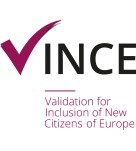
In Latvia validation of prior learning is seen as an integrative element necessary for successful development of the lifelong learning system, providing it with the needed elasticity – validation is an instrument for proving professional competences, for decreasing time needed for higher education studies, as well as a tool for making links and providing access to different forms and levels of education.
At national level in Latvia, validation of prior learning at HE levels is a part of a wider national system of validation, set up in 2011, defined by multiple legislative frameworks covering different sectors of education. The legislative framework for validation at HE levels is provided by the Law on Institutions of Higher Education (1995) through its July 2011 amendments.
Besides its application in the educational process, validation of prior learning is also applied in the labour market. Skills audits are available as a part of free career consultations provided by the State Employment Agency.
There are no specific policies, projects or initiatives in Latvia targeted at validation of skills for migrants and refugees, which is related to the small number of migrants/refugees in Latvia. The state funded languages courses help migrants/refugees to gain access to the existing mainstream validation system.
Validation in higher education/training
Validation of prior learning in higher education is governed by the Law on Institutions of Higher Education with its amendments from July 2011, which allow higher education institutions to assess the learning outcomes achieved in individual’s prior education or professional experience and award appropriate credit points for it. Additionally, the regulation No. 36 on “Procedure of Validating the Learning Outcomes Achieved through Prior Education or Professional Experience” defines the criteria and procedure for validation. Validation at tertiary levels is achieved using declarative methods and evidenced with documentation.
Validation in higher education in Latvia is decentralised, each HE institution is responsible for validating prior learning itself. Validation can only be used to obtain credit points in a HE study programme and cannot be used to grant access to higher education or for obtaining a full higher education degree.
Validation can be used for recognising learning outcomes achieved through non-formal and informal learning, as well as for validation of professional experience. Prior experiential learning can be validated within the part of the programme that is intended for the internship or within a course or module that anticipates achieving professional knowledge, skills and competences. Up to 30% of total credit points for a study programme can be recognised through validation of experiential learning.
The Higher Education Evaluation Agency at the Academic Information Centre provides external quality assurance for VPL at HE institutions as a part of its quality assurance activities in the field of HE.
Validation in the labour market
Unlike validation in the VET sector, which is closely related to the labour market, as it is possible to gain a full vocational (professional) qualification through validation alone and stakeholders from the labour market are actively involved in designing standards and also participate in examinations awarding the qualification, at the HE level “valuation” of prior learning is mostly limited to informal skills identification and audit and job matching in the framework of career consultation and guidance. Latvia has a well-developed network of career advisors, however career guidance is not systematic, which may impede the promotion of the validation process. An overarching, more structured career guidance system is needed.
The State Employment Agency, which is the main public provider of career consultation and employment services, offers free individual and group career consultation, through which it provides, among others, advice and support in exploring and assessment of individual’s interests, skills and motivation, methods for skills audit, assessment of the dispositions and competencies in specific professions in comparison to individual’s attributes.
Validation in the third sector
Third sector organisations (e.g. youth organisations, student organisations, trade unions) are actively engaged in forming policy and developing legal framework for non-formal learning and its validation, through participation in bodies (e.g. the Higher Education Council) and government working groups for development of legal framework.
Third sector organisations are not directly involved in validation activities.
Funding of VPL
In general, public funding is available for upholding the infrastructure necessary for the validation process, while the users cover the costs of their individual validation process – according to regulations, HE institutions can require the candidate to pay a fee for conducting the validation of prior learning outcomes. The fee is set according to internal regulations of the HE institution.
Target oriented funding streams or private funds (e.g. employer, labour union) may be used to exempt some individuals or target groups from covering validation costs.
References
-
- 2016 update to the European Inventory on Validation of Non-formal and Informal Learning, Country Report Latvia
- Law on Institutions of Higher Education (adopted by the parliament on 2 November 1959, revised 15 December 2011)
- Regulation No. 36 on the “Procedure of Validating the Learning Outcomes Achieved through Prior Education or Professional Experience”
- website of the National Coordination Point for referencing the Latvian Qualifications Framework to the European Qualifications Framework: http://www.nki-latvija.lv
Further Information
- All documents about validation in Latvia in the VINCE library

